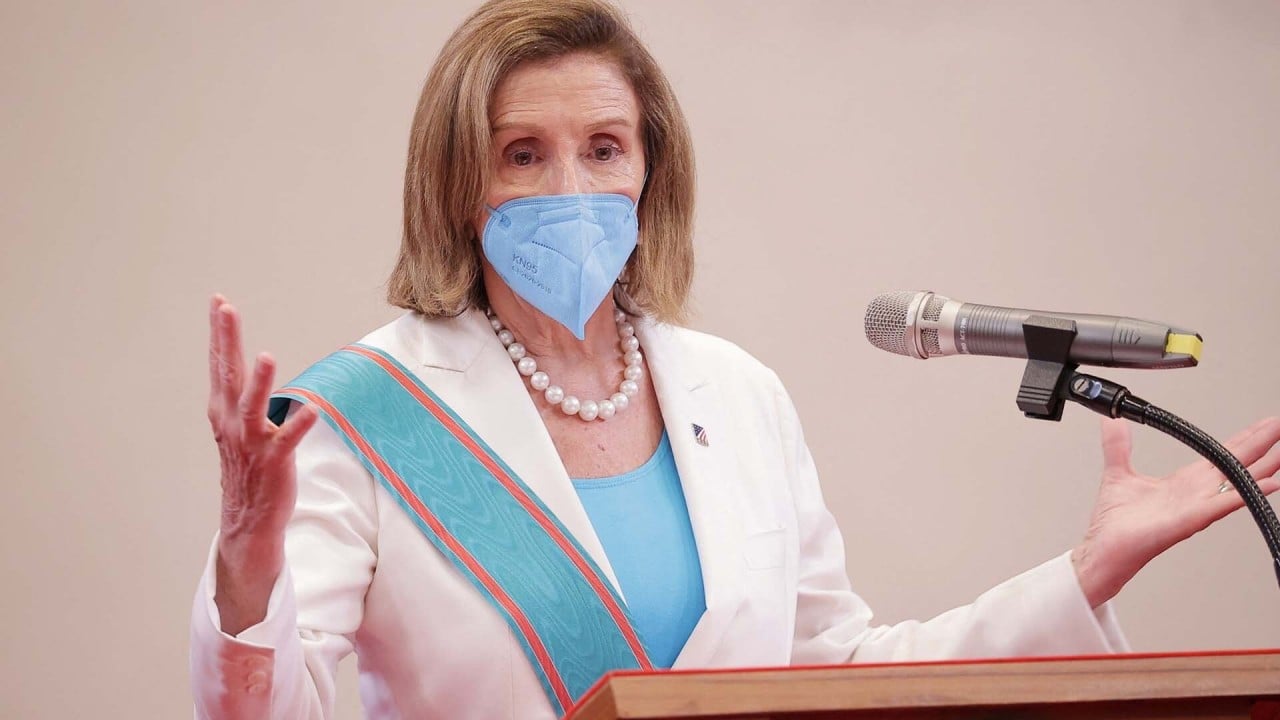
Joe Biden reaffirms stance on Taiwan in meeting with Xi Jinping
- American president says two sides ‘made some important progress’ after first direct meeting with Chinese leader in a year
- ‘My responsibility is to make this rational and manageable so it doesn’t result in conflict’
Biden added that “important progress” was made in the fight against fentanyl and the flow of ingredients used to make them, known as precursors.
“We’re taking action to significantly reduce the flow of precursor chemicals and pill presses from China to the western hemisphere. It’s going to save lives and I appreciate President Xi’s commitment on this issue,” he said.
“This is critically important. We’re resuming military-to-military contact, direct contacts,” Biden said. “Vital miscalculations on either side can cause real trouble with a country like China, or any other major country.”
Asked what consequences would ensue if Beijing were to interfere with Taiwan’s coming elections, Biden said: “I didn’t expect any interference, any at all. We had that discussion as he was leaving.”
Biden was asked, given that his relationship with Xi goes back more than a decade, whether he trusted him.
Xi Jinping offers cooperation, reassurance during US business dinner
“I trust but verify, as the old saying goes,” he said. “We’re in a competitive relationship, China and the United States, but my responsibility is to make this rational and manageable so it doesn’t result in conflict.”
Biden said he believed that after 10 years of meetings he knows Xi and how he operates.
“We have disagreements. He has a different view than I have [on] a lot of things. But he’s been straight. I don’t mean that as good, bad or indifferent. Just been straight.”
“He and I agreed that each is willing to pick up the phone and call directly and be heard immediately,” Biden told reporters, flanked by two American flags.
“Any concern about anything between our nations or happening in our region, we should pick up the phone and call one another and we’ll take the call. That’s important progress,” he said.
The Chinese confirmed that the two leaders agreed to work together on narcotics control and artificial intelligence, and resume military-military communication.
Unofficial exchanges soared ahead of Xi-Biden meeting to smooth path for talks
In a readout released ahead of Biden’s press conference, China called for cooperation and mutual respect, appearing to signal a hoped-for reset after a prolonged downward spiral in relations.
But Beijing also underscored that its concerns, especially regarding Taiwan, must be respected.
“China has interests that must be safeguarded, principles that must be defended, and bottom lines that must be adhered to,” it said.
Xi-Biden summit expectations at Apec dip further on stalled trade initiative
After Pelosi’s visit, China severed the three channels meant to prevent an inadvertent crisis and providing tools to work through one if the worst happens.
Why the US push for military guard rails with China could be a near miss
The Chinese readout included notably direct and pointed language on the relationship and where it ideally should be headed.
“China has no plans to surpass or replace the United States, and the United States should not harbour plans to suppress or contain China,” the statement said.
“Both sides should understand each other’s bottom-line principles, not toss around, stir up trouble, or cross boundaries, communicate more, have more dialogues, and discuss more, and handle differences and accidents calmly,” it added.
The US government has struggled to permanently classify fentanyl analogues as schedule 1 controlled substances, meaning they have no accepted medical applications.
Beijing often points out this lapse – along with US inability to control demand – when it is accused of contributing to the American scourge.
US-led AI declaration on military use sees 45 countries join, but not China
A key problem, according to a 2021 report by the Congressional Research Service, is that the widely varied analogues do not lend themselves to easy definitions, which is important for criminal prosecutions.
Any effort to label them under schedule I risks including some substances that are harmless while excluding others that are potentially dangerous.
That may change, however, as the US Drug Enforcement Administration reviews public feedback on a proposed rule to categorise several fentanyl-related substances as schedule I.
Quoting Xi, who rarely gives press conferences, the Chinese readout said the two economic giants were at a crossroads.
They could strengthen cooperation on global challenges, security and prosperity. Or they could adopt a “zero-sum mentality, provoke conflict between camps and lead the world into turmoil and division”, the readout said.
“The two choices represent two directions that will determine the future of mankind and the future of the Earth.”


